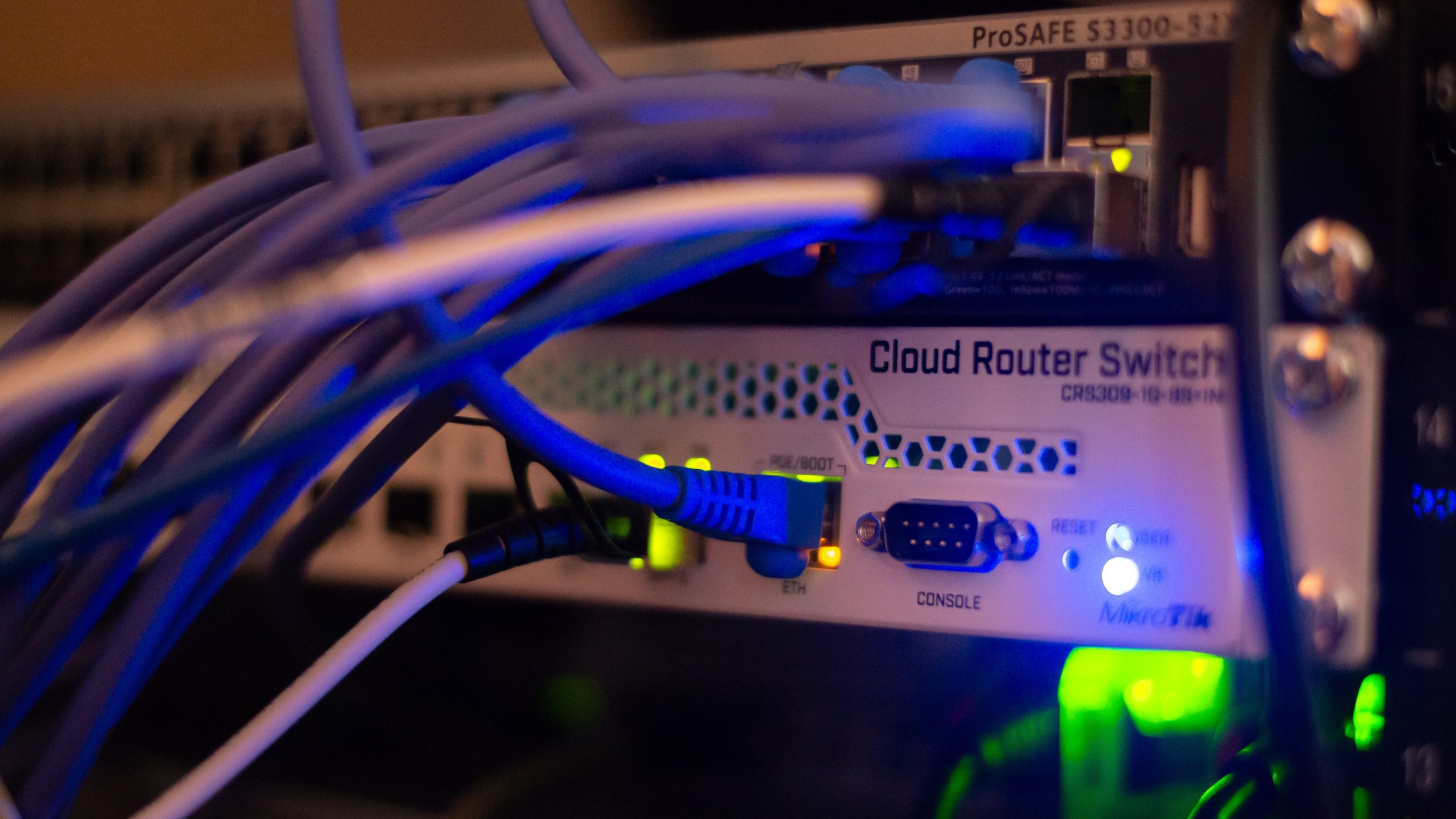Are you curious about the mysterious world of domain names and IP addresses? Do you find yourself in need of a reliable tool to help you uncover the hidden information behind these online entities? Look no further, as we delve into the realm of DNS and reverse IP address lookup tools. In this article, we will explore five incredibly useful online tools that can empower you to gain insights into the digital infrastructure that powers the internet. Whether you are an IT professional, a cybersecurity enthusiast, or simply a curious individual wanting to peek behind the virtual curtain, these tools are sure to pique your interest and provide valuable assistance in navigating the complex web of interconnected devices and domains.
Introduction: Understanding DNS and reverse IP lookup
Understanding DNS and reverse IP lookup is essential in the world of internet networking. DNS, or Domain Name System, serves as a directory for translating human-friendly domain names into machine-readable IP addresses. This process allows users to access websites and other online services by typing in easy-to-remember domain names rather than complex numerical IP addresses. On the other hand, reverse IP lookup involves finding the domains associated with a specific IP address. This can be valuable for identifying potentially malicious or unauthorized activities originating from certain IPs.
Delving deeper into DNS and reverse IP lookup can provide valuable insights for network administrators, cybersecurity professionals, and anyone interested in understanding internet infrastructure. By leveraging these tools effectively, individuals can gain better control over their network traffic and security protocols. Furthermore, understanding the relationship between domain names and IP addresses can shed light on how data flows across the internet and how different web services interact with one another.
In summary, grasping the intricacies of DNS and reverse IP lookup empowers users to navigate the digital landscape more efficiently while also bolstering their defenses against potential threats. With this knowledge at hand, individuals are better equipped to make informed decisions about their online activities and safeguard their network from unwanted intrusions or vulnerabilities.

What is DNS: Explanation of domain name system
DNS, or Domain Name System, is a critical component of the internet that often goes unnoticed by the average user. In essence, DNS is like a phonebook for the internet, translating human-readable domain names into machine-readable IP addresses. This translation process allows users to access websites and other online services using familiar domain names such as google.com or amazon.com, rather than numerical IP addresses. Without DNS, navigating the web would be an arduous task of remembering and inputting long strings of numbers for every website visited.
Moreover, DNS plays a crucial role in load balancing and fault tolerance. By distributing traffic across multiple servers based on their corresponding IP addresses retrieved from DNS resolutions, websites can handle large amounts of traffic without overloading any single server. Additionally, in the event that one server fails or becomes inaccessible, DNS can reroute requests to alternate servers through methods such as round-robin or weighted distribution—ensuring minimal disruption to users while maintaining service availability. It’s clear that understanding how DNS functions opens up a deeper appreciation for the intricate mechanics behind our online experiences.
Importance of Reverse IP Lookup: Protecting against cyber threats
The importance of reverse IP lookup cannot be overstated when it comes to protecting against cyber threats. By utilizing this tool, businesses and individuals can uncover the various domains hosted on a particular IP address, allowing them to identify potential sources of malicious activity. This proactive approach enables users to pinpoint suspicious websites or servers that may pose a threat to their network security. Moreover, reverse IP lookup can aid in uncovering hidden connections between seemingly unrelated entities, providing valuable insights into potential coordinated attacks or fraudulent activities.
Furthermore, by leveraging reverse IP lookup as part of a comprehensive cybersecurity strategy, organizations can take proactive measures to safeguard their digital assets and sensitive information. Identifying unauthorized or dubious domains associated with an IP address empowers businesses to bolster their defenses and implement targeted security measures to mitigate potential risks. This level of visibility not only helps in preventing cyber-attacks but also allows for swift response and containment if any malicious activities are detected. Ultimately, integrating reverse IP lookup into cybersecurity practices is crucial for staying one step ahead of evolving threats in the digital landscape.

Top 5 Online Tools: Brief overview of each tool
1. DNSstuff: A comprehensive online tool that provides DNS lookup, monitoring, and management services. It allows users to perform various checks on domain names, IP addresses, and mail servers. Additionally, it offers detailed reports on domain health and performance, making it a valuable resource for network administrators and website owners. With its user-friendly interface and advanced features, DNSstuff is an essential tool for anyone looking to optimize their online presence and ensure smooth running of their web infrastructure.
2. IPinfo: Offers a suite of tools for IP address-related queries such as Geolocation API, ASN API, Bulk IP Lookup, Hosted Domains API among others. It provides accurate geolocation data along with other relevant details about the IP address in question. This can be immensely helpful for businesses looking to target specific geographic regions or understand user demographics based on their incoming traffic. The intuitive interface and extensive database make IPinfo a top choice for those seeking reliable information related to IP addresses.
3. MX Toolbox: One of the most powerful tools for DNS and IP address lookup, MX Toolbox offers comprehensive analysis of domain names, mail servers, and DNS settings. It provides real-time monitoring and diagnostic tools to help users identify issues with their DNS configuration. Additionally, its interface is user-friendly and provides detailed reports on domain health, blacklist monitoring, and SPF records.
4. WHOIS Lookup: This widely used tool allows users to find information about a domain name or IP address including the owner’s contact details, registration date, expiration date, and name server information. It also helps in identifying potential cases of domain squatting or unauthorized usage of a particular domain name. WHOIS Lookup is an indispensable tool for businesses looking to verify the authenticity of a website or track down the ownership details of a suspicious domain.
5. Spyse: As an all-in-one cybersecurity search engine with advanced capabilities in DNS lookup and reverse IP address search, Spyse provides updated data about domains’ infrastructure components along with historical records which can aid in identifying potential security risks associated with specific websites or networks.
How to Use the Tools: Step-by-step guide
In this step-by-step guide, we will walk you through how to effectively use the tools for DNS and reverse IP address lookup. First, familiarize yourself with the interface of each tool to understand their different functionalities. For DNS lookups, start by entering the domain name in the search bar and click ‘Lookup’. You will then receive comprehensive information about the domain’s IP address, name servers, and other crucial details. Utilize filtering options to refine your results if needed.
When using reverse IP address lookup tools, input the IP address you want to investigate and initiate the search. The tool will furnish a list of domains hosted on that particular IP address along with relevant data such as location and hosting provider information. Take advantage of export features to save and analyze your findings further.
Remember that these tools can be invaluable when troubleshooting network issues or assessing potential security threats. Mastering their usage can empower you to make informed decisions about online assets and fortify your digital presence.

Benefits of Using These Tools: Enhancing online security
Enhancing online security is a top priority for businesses and individuals in today’s digital landscape. Utilizing online DNS and Reverse IP Address Lookup tools can provide a significant boost to security efforts. These tools offer the ability to quickly and easily identify potential threats, such as malicious domains or suspicious IP addresses, allowing users to take proactive measures to protect their networks and data.
Moreover, by leveraging these tools, organizations can gain valuable insights into their online infrastructure, helping them identify vulnerabilities and address potential weaknesses before they are exploited by cyber attackers. Additionally, the ability to track IP addresses back to their source can aid in the investigation of security incidents, enabling a more efficient response to any breaches or unauthorized access attempts. Ultimately, incorporating these tools into an organization’s security strategy not only enhances protection against cyber threats but also provides valuable intelligence for maintaining a robust online presence.
Conclusion: Importance of leveraging these tools
In conclusion, the importance of leveraging online DNS and reverse IP address lookup tools cannot be overstated in today’s digitally driven landscape. These tools provide invaluable insight into the infrastructure of websites and can help organizations identify potential security threats, investigate suspicious activities, and optimize network performance. By harnessing the power of these tools, businesses can effectively monitor their online presence, mitigate cybersecurity risks, and enhance their overall digital footprint.
Furthermore, these tools offer a competitive advantage by enabling businesses to gain a deeper understanding of their competitors’ infrastructure and technological capabilities. This knowledge empowers organizations to make informed decisions about their own internet strategy while staying ahead in the ever-evolving online marketplace. Leveraging these tools is not only beneficial for IT professionals but also for marketers, sales teams, and business leaders who seek to maximize their online presence and ensure a seamless user experience for their customers. In essence, embracing these online DNS and reverse IP address lookup tools is paramount for staying proactive in an increasingly complex digital environment.






